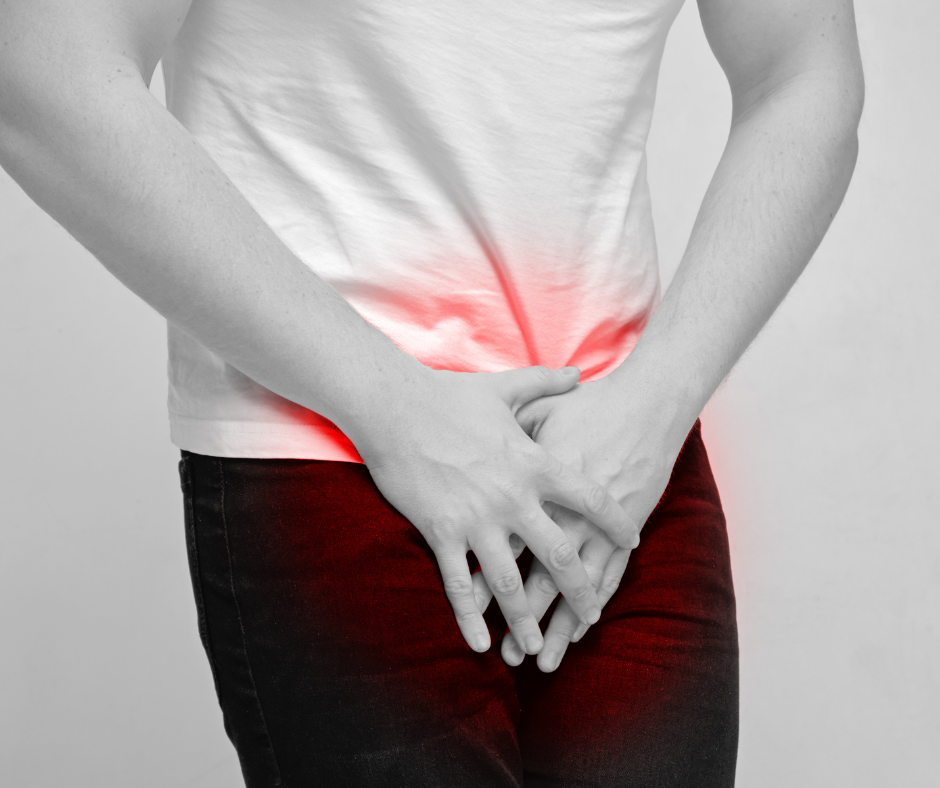Imagine that you’ve just made a significant step towards improving your health and overall quality of life by quitting alcohol. But instead of feeling invigorated, you’re feeling tired after quitting alcohol. You’re not alone. Fatigue is a common symptom after quitting alcohol, but why does this happen? More importantly, how can you manage it to get back on track to a healthier, more energetic you? Let’s delve into the complexities of fatigue and alcohol withdrawal and discover ways to combat this draining side effect.
Short Summary
-
Quitting alcohol can lead to extreme fatigue due to its effects on the central nervous system.
-
Establish a healthy sleep routine, stay hydrated and eat well for optimal health during withdrawal.
-
Seek professional help if experiencing persistent or severe fatigue during recovery – it’s worth it!
The Connection Between Alcohol Withdrawal and Fatigue

Quitting alcohol, or quitting drinking, can be an uphill battle, with alcohol withdrawal symptoms such as:
-
anxiety
-
mood swings
-
restlessness
-
nausea
However, one symptom that often goes unnoticed is fatigue. Extreme fatigue is a very common side effects of when you stop drinking alcohol. In fact, it has been found to be one of the most ubiquitous symptoms of alcohol withdrawal, especially in cases where individuals experience extreme fatigue.
But why does this happen? Alcohol has the power to slow down the central nervous system. It is categorized as a depressant. When a person drinks, it slows down the body’s functions, causing a decrease in:
-
heart rate
-
respiratory rate
-
brain activity
-
blood pressure
Now imagine that you’ve decided to quit drinking. Suddenly, your body is no longer reeling from the effects of alcohol, and your central nervous system is left unbridled. This sudden change can lead to a surge in withdrawal symptoms, including extreme fatigue.
The Role of Alcohol in the Body
Alcohol is not just an addictive substance; it’s also a potent drug that can wreak havoc on your body. When you drink alcohol, it acts as a depressant, slowing down vital functions like your heart rate, respiratory rate, and brain activity. This can lead to a drop in blood pressure and a feeling of relaxation or drowsiness. However, your body also becomes accustomed to functioning with alcohol in its system. This is known as alcohol dependence. One of the foolproof ways to spot alcohol dependence is when you experience once I start drinking I can’t stop phenomenon quite frequently.
When you stop drinking, your body has to adjust to functioning without alcohol, which can lead to a range of withdrawal symptoms, including fatigue. Moreover, alcohol can disrupt your natural sleep cycles, leading to sleep disorders and daytime fatigue. It can be particularly challenging to fall asleep without the sedating effects of alcohol, and your body’s circadian rhythm may be thrown off. This can further exacerbate feelings of fatigue during the early stages of recovery.
Central Nervous System Depressant
Alcohol’s effects on the central nervous system are far-reaching. Alcohol is a depressant. It can slow down vital functions such as:
-
the heart rate
-
respiratory rate
-
brain activity
-
blood pressure
While this may provide a temporary feeling of relaxation or euphoria, it can also lead to serious physical and mental health issues in the long run.
When you quit drinking, your central nervous system is no longer suppressed by alcohol. This can lead to a sudden increase in heart rate, blood pressure, and brain activity – a shock to the system that can trigger withdrawal symptoms, including fatigue.
When it comes to alcohol withdrawal, effectively managing fatigue goes beyond merely restoring energy levels. It involves comprehending the impact of alcohol on the body and its influence on the central nervous system. At Lantana Recovery, a leading Charleston South Carolina rehab center, we prioritize understanding these crucial aspects to provide comprehensive care and support during this challenging process.
Common Causes of Fatigue After Quitting Alcohol

Now that we understand the impact of alcohol on the body and the central nervous system, let’s delve into the common causes of fatigue after quitting alcohol. While the sudden absence of alcohol in your system can trigger withdrawal symptoms, there are also other factors at play. These include disrupted sleep patterns, dehydration, and liver damage.
Disrupted sleep patterns are often a consequence of alcohol use. Alcohol can interfere with your body’s natural sleep-wake cycle, leading to poor sleep quality and daytime sleepiness. Dehydration is another common side effect of alcohol use, as alcohol is a diuretic that can leave you feeling thirsty and depleted. Lastly, long term heavy alcohol use can lead to liver damage, which can further contribute to feelings of fatigue.
Disrupted Sleep Patterns
Alcohol may help you fall asleep faster, but it actually disrupts your sleep cycle, leading to poor sleep quality. When you drink alcohol, it interferes with your body’s natural circadian rhythm, the 24-hour cycle that regulates sleep and wakefulness. This can lead to frequent awakenings, fragmented sleep, and daytime fatigue.
“Heavy alcohol use and AUD have been linked to subjective insomnia and objective sleep continuity disturbance.” (Alcohol and sleep-related problems, Sean He, 2019)
When you quit drinking, your body has to adjust to a new sleep-wake cycle without the sedative effects of alcohol. This can lead to difficulties in falling asleep, insomnia, and daytime fatigue. Therefore, improving sleep quality is a crucial step in managing fatigue during alcohol withdrawal.
Dehydration
Alcohol is a diuretic, meaning it makes you urinate more. This can lead to dehydration, which in turn can make you feel tired and sluggish. Moreover, dehydration can exacerbate other withdrawal symptoms, such as vomiting, nausea, and sweating, making you feel even more fatigued.
Staying hydrated is therefore crucial during alcohol withdrawal. Adequate hydration not only helps to alleviate symptoms of withdrawal, but it also helps to flush out toxins from your body and keeps your body functioning optimally.
Liver Damage and Its Effects on Fatigue
Long-term alcohol consumption can lead to liver damage, a condition known as cirrhosis. The liver is responsible for processing and removing toxins from the body. When the liver is damaged, it struggles to perform these functions effectively, leading to a buildup of toxins in the body. This can be a result of alcohol abuse and manifest as:
-
Fatigue, as your body is unable to efficiently process toxins and generate energy
-
Jaundice, a yellowing of the skin and eyes
-
Swelling in the legs and abdomen
-
Easy bruising and bleeding
-
Itchy skin
-
Confusion and difficulty concentrating
If you suspect that you or someone you know may have liver damage from alcohol use, it is important to seek medical attention.
Quitting alcohol can give your liver a chance to heal and recover, but the damage may not be completely reversible. However, by deciding to quit alcohol and following a healthy lifestyle, including a balanced diet and regular exercise, you can support your liver health and reduce feelings of fatigue.
Managing Fatigue During Alcohol Withdrawal

Now that we’ve identified the common causes of fatigue during alcohol withdrawal, let’s discuss strategies to manage it. Overcoming fatigue isn’t just about getting more sleep or drinking more water – although these are important steps. It’s also about taking care of your physical and mental health, which includes:
-
Establishing a healthy sleep routine
-
Staying hydrated
-
Eating well
-
Engaging in light exercise
These strategies may seem simple, but they can have a profound impact on your energy levels and overall well-being. They can help you feel more energized, improve your mood, and enhance your ability to cope with the challenges of alcohol withdrawal.
Establishing a Healthy Sleep Routine
Establishing a healthy sleep routine is crucial in managing fatigue during alcohol withdrawal. After quitting alcohol, your sleep patterns may be disrupted, causing difficulties in falling asleep and staying asleep. Developing a consistent sleep routine can help your body adapt to a new sleep-wake cycle.
Creating an environment conducive to effective and compassionate addiction care includes establishing a consistent bedtime and wake-up time, crafting a soothing bedtime routine, and refraining from using screens before sleep. By embracing these straightforward adjustments, individuals can experience more restful sleep, providing their bodies with the crucial rest required for healing and recovery during alcohol withdrawal.
Staying Hydrated and Eating Well
Proper hydration and nutrition are essential in managing alcohol withdrawal fatigue. As we’ve discussed earlier, alcohol can cause dehydration, which can exacerbate feelings of fatigue. Drinking plenty of fluids throughout the day can help keep your body hydrated and functioning at its best.
In addition to staying hydrated, maintaining a balanced diet can also help in fighting fatigue. Consuming a diet rich in complex carbohydrates, healthy fats, and lean proteins can provide your body with the necessary nutrients to support your recovery.
Engaging in Light Exercise
Exercise is another powerful tool in managing fatigue during alcohol withdrawal. While you may not feel like working out, light exercise can actually boost your energy levels and improve your mood. Activities such as walking, stretching, and yoga can help get your blood flowing and heart rate up without putting too much strain on your body.
It’s important to consult your healthcare provider before starting any new exercise routine, especially during alcohol withdrawal.
The Timeline for Recovery and Overcoming Fatigue

While it’s important to manage fatigue during alcohol withdrawal, it’s also crucial to remember that recovery takes time. The timeline for recovery and overcoming fatigue can vary from person to person, depending on factors such as:
-
the amount and duration of alcohol use
-
overall health
-
age
-
genetic predisposition
In the initial stages of recovery, you may experience a range of withdrawal symptoms, including extreme fatigue. However, with time, these symptoms will gradually subside, and you’ll start to experience the long-term benefits of quitting alcohol.
Short-term Effects
The first few days or weeks of sobriety can be challenging, with withdrawal symptoms such as:
-
anxiety
-
mood swings
-
insomnia
-
fatigue
These short-term effects can be uncomfortable and even distressing, but they’re a sign that your body is adjusting to the absence of alcohol.
Severe withdrawal symptoms, such as seizures, hallucinations, and delirium symptoms, can also occur in some cases. If you experience withdrawal symptoms like these, it’s important to seek immediate medical attention.
Long-term Benefits
While the initial stages of recovery can be tough, it’s important to remember the long-term benefits of quitting alcohol. Over time, your body will start to heal from the effects of alcohol, leading to:
-
Improved liver function
-
Lower risk of cardiovascular disease and cancer
-
Weight loss
-
Healthier skin
-
Better sleep
-
Less frequent sickness
-
Better concentration
Sleep problems related to liver damage can improve within three months of quitting alcohol, and symptoms of fatigue will gradually decrease. It’s a journey that requires patience and perseverance, but the rewards are well worth it.
When to Seek Professional Help

While the tips and strategies we’ve discussed can help you manage fatigue during alcohol withdrawal, it’s important to recognize when professional help is needed. Persistent fatigue, severe withdrawal symptoms, or worsening physical or mental health symptoms are all signs that you should consult a healthcare professional.
Recovery from alcohol addiction is not a journey you have to embark on alone. There are numerous resources and support systems available to help you navigate through this challenging time, from medical professionals to counseling and support groups.
Persistent Fatigue

Persistent fatigue is more than just feeling tired. It’s a deep, debilitating exhaustion that can interfere with your daily activities and overall quality of life. If your fatigue persists after quitting alcohol, it’s important to speak with a healthcare professional.
Persistent fatigue can be a sign of an underlying health issue, such as anemia, thyroid problems, or chronic fatigue syndrome. It’s crucial to determine the cause of your fatigue so that appropriate treatment can be provided.
Severe Withdrawal Symptoms
Severe withdrawal symptoms, such as seizures, hallucinations, and delirium symptoms, require immediate medical attention. These symptoms can be life-threatening and should not be ignored.
If you’re experiencing severe withdrawal symptoms, it’s crucial to seek medical help right away. Treatment may include medication to manage withdrawal symptoms and prevent complications, as well as ongoing support to help you maintain abstinence and manage the psychological aspects of recovery.
Summary
Quitting alcohol is a significant step towards a healthier and more fulfilling life. While the journey may be challenging, especially with symptoms like fatigue, it’s important to remember that these challenges are part of the recovery process. With time, patience, and the right strategies, you can manage fatigue and reap the long-term benefits of sobriety. Remember, you don’t have to navigate this journey alone – seek professional help when needed and lean on support systems to help you through this transformative journey.
Frequently Asked Questions
Do you feel tired after giving up alcohol?
Giving up alcohol can cause tiredness and a lack of energy, as well as muscle aches.
However, it’s important to consider other conditions that may be causing these symptoms. You should consult with your doctor if you feel unusually fatigued after giving up alcohol.
How long will it take me to feel better after quitting drinking?
It can take up to 12 months to fully recover from drinking, but most people will start to enjoy the benefits of being alcohol-free within a few weeks.
So keep going and stay motivated – you’ll soon be feeling great!
What happens to your body after 1 week of not drinking alcohol?
After a week without alcohol, your body will start to feel the benefits with improved energy and concentration levels, better quality sleep, and an overall feeling of being more refreshed.
These benefits are just the start of the positive changes that can occur when you give up alcohol. You may also find that your skin looks healthier, your digestion improves, and you have more money in your pocket.
What is the connection between alcohol withdrawal and fatigue?
When you stop drinking alcohol, your body is no longer suppressed by it, leading to fatigue due to alcohol withdrawal.
This fatigue can be difficult to manage, but there are ways to cope with it. For example, getting plenty of rest, eating healthy meals, and engaging in light exercise can help you manage your fatigue.
What are the short-term effects and long-term benefits of quitting alcohol?
Quitting alcohol leads to immediate effects such as withdrawal symptoms like fatigue, but can also bring long-term health, sleep and mental clarity benefits.









